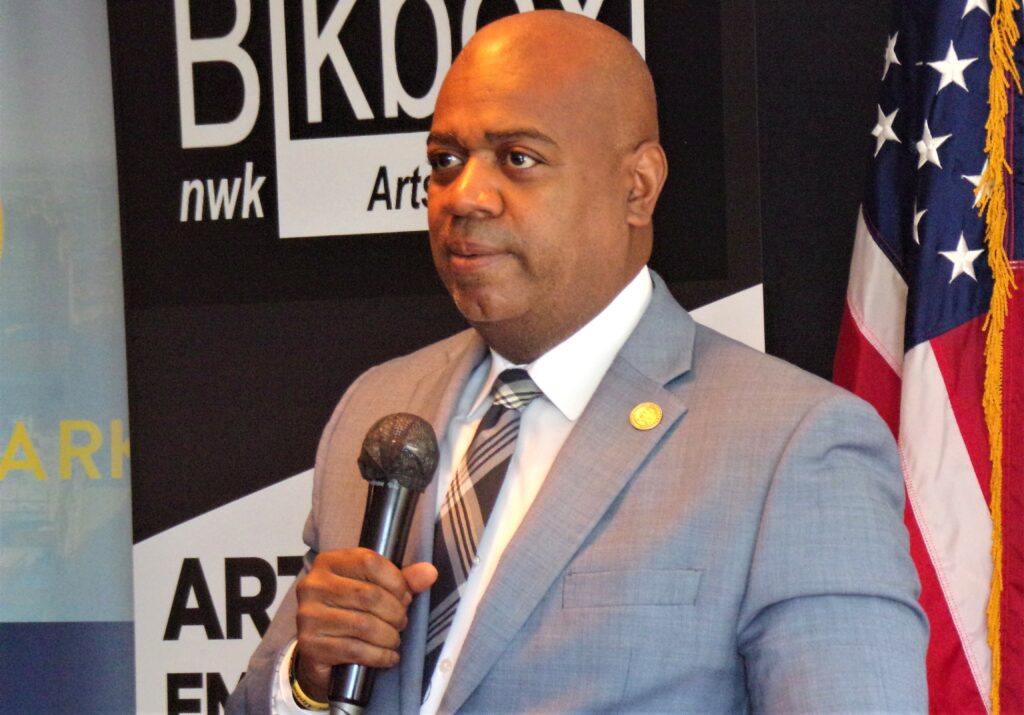What's Likely to Go Missing in Newark's 2022 Election? Voters

If past is prologue, just a tiny fraction of Newark’s 165,000 voters will turnout for next Tuesday’s municipal election.
The likely anemic local voter engagement comes at a precarious time in our national narrative. Respected scholars are positing that a ‘democratic’ country where tens of millions of voters believe the last national election was stolen maybe actually be ungovernable.
That widespread distrust, when combined with the kind of apathy and voter disengagement that’s on display in a city like Newark should alarm us.
Even in 2020, when the nation set a record for the number of voters casting a ballot, only 49 percent of Newark’s voters turned out. By 2021, with Governor Murphy at the top of the ticket, just 20 percent bothered to turnout.
In 2018, Council President Luis Quintana just needed to garner 17,000 votes to win his at large Council seat, just about ten percent of the registered voters. In the South Ward, John Sharpe James claimed victory with just 3,000 votes.
What accounts for this Newark voter disconnect? Could it be that a succession of political corruption indictments and convictions have just worn down the electorate? Is just getting by so hard, that a lot of voters just don’t have the bandwidth to get involved in a process that seems to just enrich those that get elected and their relatives?
Could it also be a symptom of the increasing economic marginalization of people of color as the concentration of white wealth at the top has accelerated in the aftermath of the Great Recession? Over the last few years of the pandemic it has been the same struggling communities of color that bore the brunt of COVID, with death rates exponentially higher than wealthier and whiter communities.
For a few years now, researchers have linked a marked decline in Black homeownership, in the aftermath of the 2008 Wall Street sparked mortgage crisis, with a decline in Black voter turnout. Black home ownership is now at its lowest level since the enactment of the landmark1968 Fair Housing Act.
In 2016, Donald Trump’s edging out former Secretary of State Hillary Clinton in the Electoral College by capturing states like Michigan and Pennsylvania had everything to do with a hundreds of thousands of Black voters staying home, after turning out reliably for President Obama in 2008 and 2012. While the economy in the aggregate appeared to recover, Black homeownership took a major hit as generations of family household wealth was lost to predatory lenders.
While 75 percent of white Americans own their own home, Black home ownership has dropped to 41 percent, a gap that helps explain the widening racial household wealth gap that’s now about ten to one.
According to a 2020 research paper by Brigham Young University sociologist Jacob S. Rugh there’s a strong link between homeownership and voter participation.
“First off, it's easier to vote if you stay at the same address as homeowners do, more likely than renters,” Rugh told KUER, the NPR affiliate in Utah. “Second, it's easier to vote when you have more resources and more time. And third, it's more likely that homeowners vote because voting, like any measure of civic participation, such as writing a letter to an official or participating in a protest, corresponds to more resources such as income, education and wealth in the form of home equity or your home value.”
With less than a week to go before Newark’s municipal election, a Rutgers University study shows that close to half of all of its homes are owned by corporations, “a model designed to enrich investors through returns from rent collections….that can displace residents and ownership,” according to the authors of Who Owns Newark?
“The Rutgers Center on Law, Inequality and Metropolitan Equity (CLiME) found the city has the highest rate of corporate buyers in the nation, although numbers are rising throughout the country,” according to a press release issued with the report. “This is especially true in mostly Black neighborhoods, like Newark’s South and West Wards, where corporate property ownership is most prevalent.”
The Rutgers’ researchers wrote, that while this trend is happening in other cities it is playing out on in Newark “on a scale unmatched anywhere in the country.”
Of the 2,500 homes sold in Newark between 2017 and 2020, “more than 47 percent of the city’s one-to-four unit buildings – were sold to institutional buyers” who were often “completely anonymous investors”, hence the title of the Rutgers’ report, Who Owns Newark? Transferring Wealth from Newark Homeowners to Corporate Buyers. “Sadly, this reality continues a long pattern of economic threat to predominantly Black and increasingly Latino neighborhoods in a state whose communities are among the most segregated in the country,” the report states. “From racial exclusion to predatory lending, from foreclosure to the extraction of rents, Newark’s experience demonstrates what can happen when local economies ignore equity.’’ “These trends demonstrate the strong probability of rapidly rising rents, lower homeownership rates, a diminished Black middle class, market challenges to building affordable homes, and even more housing instability for low- and moderate-income Newarkers and displacement,’’ according to the report.
Professor David D. Troutt, a distinguished professor of Law and Justice John J. Francis Scholar as well as the founding director of the Rutgers Center on Law in Metropolitan Equity, contributed to the home ownership analysis.
The Rutgers’ report notes that home ownership is the way that wealth gets transferred between the generations as it helps to provide stability as well as enhanced public safety, all of which re-enforces “neighborhood autonomy.”
“Traditionally, Americans believed homeownership to be the individual path to collective security,” Troutt said. “Corporate buying up of the residential market forecloses all of that.”





